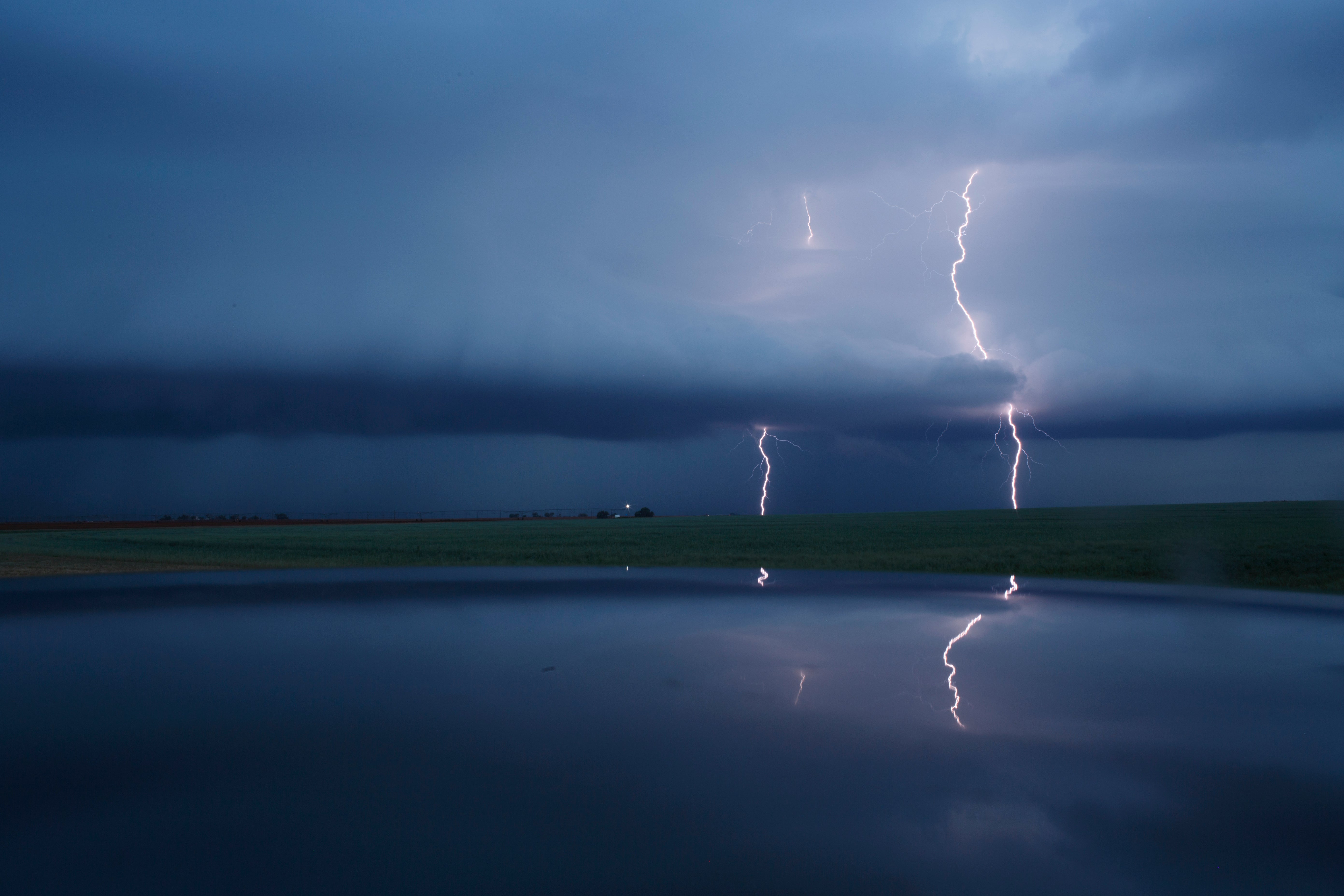Increase in lightning around the North Pole has scientists worried
Usually rare, lightning strikes in Arctic have become key indicator into climate crisis

Your support helps us to tell the story
From reproductive rights to climate change to Big Tech, The Independent is on the ground when the story is developing. Whether it's investigating the financials of Elon Musk's pro-Trump PAC or producing our latest documentary, 'The A Word', which shines a light on the American women fighting for reproductive rights, we know how important it is to parse out the facts from the messaging.
At such a critical moment in US history, we need reporters on the ground. Your donation allows us to keep sending journalists to speak to both sides of the story.
The Independent is trusted by Americans across the entire political spectrum. And unlike many other quality news outlets, we choose not to lock Americans out of our reporting and analysis with paywalls. We believe quality journalism should be available to everyone, paid for by those who can afford it.
Your support makes all the difference.A significant increase in lightning in the high Arctic was recorded in 2021, which scientists say is a sign of how the climate crisis is affecting global weather.
Vaisala, a Finnish firm that tracks lightning around the world, reported 7,278 lightning strikes in the North Pole region. This is nearly double as many as occurred in the previous nine years combined.
Lightning sightings in the earth’s northernmost region are usually rare. Scientists use it as a key indicator of the climate crisis as it proves temperatures in the area are rising as the Arctic air tends to lack the convective heat needed to create lightning.
For lightning to occur, there needs to be an unstable atmosphere and warm and moist air, which is why it typically occurs in tropical destinations.
The melting of the ice caps means that more water can evaporate, increasing moisture in the atmosphere. Temperatures have also risen three times the global average in the region and so combined with atmospheric instability, the Arctic has seen an increase in lightning.
The latest findings have worried many scientists, including Vaisala’s meteorologist and lightning applications manager, Chris Vagasky.
“Over the last 10 years, overall lightning counts north of the Arctic Circle have been fairly consistent,” he said. “But at the highest latitudes of the planet – north of 80° – the increase has been drastic. Such a significant shift certainly causes you to raise your eyebrows.”
He added: “Changes in the Arctic can mean changes in the weather at home. All weather is local, but what happens at your house depends on how the atmosphere is behaving elsewhere throughout the world. Changes to conditions in the Arctic could cause more extreme cold outbreaks, more heatwaves, or extreme changes in precipitation to Europe.”
The risk of being hit by lightning in the Arctic remains low, but the increased probability of lightning could still threaten communities that have previously not had to deal with such weather extremes.
Lighting in the US increased in 2021, according to the report, with more than 194 million lighting strokes recorded – 24 million than in 2020.
Wildfires across Europe and North America last summer were also in part caused by lightning strikes. Typically less than 15 per cent of wildfires a year are caused by lightning, but these ones burn more acreage than human-caused fires.
“A changing climate may increase the potential for lightning-triggered wildfires,” Mr Vagasky said.
“Scientists can’t tie a lightning strike from one day to the changes in our climate, but monitoring trends of lightning in the Arctic is especially important and something that will need to be studied now and in the future.”
Join our commenting forum
Join thought-provoking conversations, follow other Independent readers and see their replies
Comments